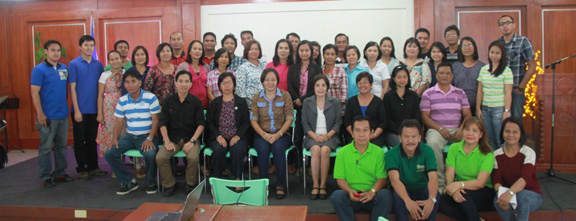
Helping to boost the potential of agriculture in northern Philippines, the Philippine Nuclear Research Institute – Department of Science and Technology (PNRI-DOST) conducted a “Seminar on the Use of Nuclear Analytical Techniques for Improving Soil Test Calibration and Irrigation Management in Corn Production” at the Cagayan Valley Research Center (CVRC) in San Felipe, Ilagan, Isabela last November 4.
The seminar served as a venue for the participating agencies to share the preliminary findings of the study after two years of research work.
The project on nuclear applications for nutrient and irrigation management is funded by DOST and the Philippine Council for Agriculture, Aquatic and Natural Resources Research and Development (PCAARRD), one of the department’s sectoral planning councils.
PNRI also works in collaboration with the Bureau of Soils and Water Management (BSWM) of the Department of Agriculture (DA), the Philippine Rice Research Institute (PhilRice), and Central Luzon State University (CLSU) in developing better “precision-farming” methods by assessing soil, nutrient and irrigation efficiency for corn, among other crops. Nuclear techniques play a special role in this project as the use of various stable isotopes present in fertilizers and water provide a more direct assessment of fertilizer use efficiency compared to other analytical methods.
The findings showed that on average, over half of the nitrogen absorbed by the plants came from the fertilizers added at the earlier stages. This percentage decreases as it approaches the harvest period. Nonetheless, the nitrogen absorbed from fertilizers still increased towards maturity and were proportional to the biomass yield. As for the total nitrogen absorbed by the crops (including nitrogen from both soil and fertilizers), these demonstrated an increasing trend regardless of soil fertility levels. The use of fertilizers becomes less efficient as one increases the rate of nitrogen fertilizer application.
Many of the participants were from the project’s beneficiaries and stakeholders such as the DA Regional Field Unit 2, the National Corn Program, local government units in the nearby provinces and municipalities and other farmer-cooperators.
Having met the first half of the planned activities, the DOST and PCAARD-funded project will continue for another two years, for a total of four years of research on crop nutrient and irrigation management.












































